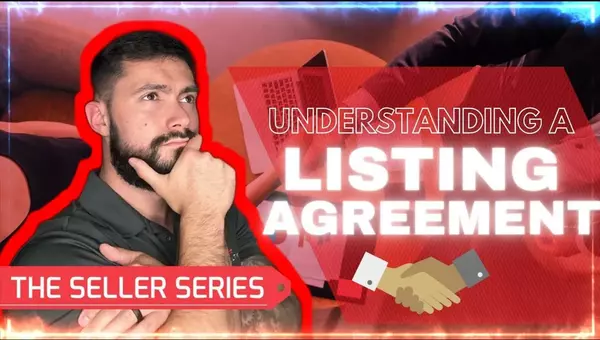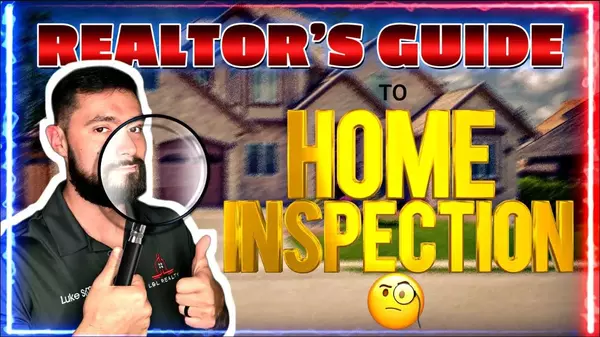Navigating the Offer Review Process: Strategies for Maximizing Your Home Sale

Navigating the Offer Review Process: Strategies for Maximizing Your Home Sale
TL;DR — Reviewing an offer is about validating every detail that affects your bottom line and timeline: check the pre-approval letter, ensure the listing agreement terms are reflected, confirm the buyer has signed the seller’s property disclosure, understand the loan contingency and its financing window, evaluate the purchase price against market value, assess the earnest money deposit, align the proposed closing date with your schedule, and weigh any contingencies or seller concessions. In a market with multiple offers, set a review timeline to encourage stronger proposals, price the home to attract interest, and compare all offers not just by price but by terms, financing, contingencies, and the likelihood of a smooth close. Your response can be to accept, reject, or counter, keeping your goals in focus and maintaining clear communication throughout the process. To protect the deal, address financing contingencies and appraisals proactively with strategies like competitive pricing, flexibility on terms, comprehensive property information, and negotiating contingency details. Finally, leverage virtual review sessions and digital resources to streamline decision-making and stay organized, so you can navigate the offer review with confidence and drive toward a successful sale.
Congratulations! You've reached a pivotal moment in the home selling journey - receiving and reviewing offers. This step can be both exciting and daunting, as it marks the transition from marketing your property to negotiating the final sale. In this comprehensive guide, we'll walk you through the process of receiving, analyzing, and responding to offers, equipping you with the knowledge and strategies to make the most informed decisions and secure the best possible outcome for your home sale.
Understanding the Offer: Key Components to Review
When an offer is presented, it's crucial to thoroughly review each component to ensure it aligns with your goals and expectations. Let's dive into the key elements you'll need to examine:
-
Pre-Approval Letter: Verify that the buyer has a valid pre-approval letter from a lender, as this demonstrates their financial readiness and commitment to the transaction.
-
Listing Agreement: Ensure that the terms of the listing agreement, including the commission structure and any other contractual obligations, are accurately reflected in the offer.
-
Seller's Property Disclosure: Confirm that the buyer has reviewed and signed the seller's property disclosure, which outlines the known condition of the home.
-
Loan Contingency: Understand the details of the loan contingency, including the timeframe the buyer has to secure financing and any specific requirements or limitations.
-
Purchase Price: Evaluate the offered purchase price and compare it to your initial listing price and the current market value of your home.
-
Earnest Money Deposit: Review the amount of the earnest money deposit, which serves as a good-faith gesture from the buyer and can impact the strength of the offer.
-
Closing Date: Assess the proposed closing date and ensure it aligns with your timeline and any other commitments you may have.
-
Contingencies: Carefully examine any additional contingencies, such as home inspections, appraisals, or the sale of the buyer's current property, and how they may impact the transaction.
-
Seller Concessions: Determine if the buyer is requesting any seller concessions, such as contributions towards closing costs or repairs, and evaluate their impact on the overall deal.
By thoroughly reviewing each of these components, you'll gain a comprehensive understanding of the offer and be better equipped to make an informed decision.
Navigating Multiple Offers: Leveraging Competition
In a competitive real estate market, it's not uncommon to receive multiple offers on your property. This presents an exciting opportunity to leverage the competition and potentially secure a more favorable outcome. Here's how you can approach this scenario:
Setting a Review Timeline
When you receive an offer, you don't have to respond immediately. Instead, you can set a timeline for reviewing offers, typically a few days, to allow for the possibility of additional offers. This gives you the flexibility to compare offers and negotiate from a position of strength.
During this review period, you can communicate with the buyer's agents, letting them know that you have received an offer and are considering it, along with any other offers that may come in before the review deadline. This can encourage them to submit their best and final offer, as they know they are competing against other interested buyers.
Generating Competitive Offers
To create a competitive bidding environment, it's essential to price your home strategically. By pricing it at fair market value, you'll attract a larger pool of interested buyers, increasing the likelihood of multiple offers. This can give you the leverage to negotiate better terms, such as a higher purchase price or more favorable contingencies.
Additionally, you can proactively reach out to agents who have shown interest in your property or have clients actively searching for homes in your area. Inform them that you have received an offer and are reviewing others, encouraging them to submit their best proposal before the review deadline.
Evaluating and Comparing Offers
When you have multiple offers on the table, carefully evaluate each one, considering not only the purchase price but also the overall terms and conditions. Look for factors such as the buyer's financing, the strength of their earnest money deposit, and any contingencies that may impact the transaction's timeline or success.
Remember, the highest offer may not always be the best offer. Sometimes, a slightly lower offer with more favorable terms, such as a shorter closing timeline or fewer contingencies, can be the better choice. By weighing all the factors, you can make the most informed decision that aligns with your goals and priorities.
Responding to Offers: Acceptance, Rejection, or Counteroffers
Once you've thoroughly reviewed the offer(s), it's time to decide how to respond. You have three main options:
Accepting the Offer
If the offer meets your expectations and aligns with your goals, you can choose to accept it. This will initiate the next steps in the transaction, including the buyer's due diligence period, the appraisal, and the closing process.
Remember, even after accepting an offer, it's crucial to stay engaged and monitor the progress of the transaction. Maintain open communication with the buyer's agent and be prepared to address any issues that may arise during the process.
Rejecting the Offer
If the offer falls short of your expectations, you have the option to reject it. This may be the case if the purchase price is significantly lower than your listing price, the terms are unfavorable, or the buyer's financial qualifications are questionable.
When rejecting an offer, it's important to do so politely and professionally. Provide the buyer's agent with a clear explanation for your decision, as this can help maintain a positive relationship and leave the door open for future negotiations.
Countering the Offer
If the offer is close to meeting your expectations, but there are specific terms you'd like to modify, you can choose to counter the offer. This allows you to negotiate the details and potentially reach a mutually agreeable solution.
When crafting a counteroffer, focus on the key areas you'd like to adjust, such as the purchase price, closing date, or contingencies. Be prepared to provide a clear rationale for your proposed changes, as this can help the buyer understand your perspective and increase the likelihood of a successful negotiation.
Navigating Financing Contingencies and Appraisals
One of the most critical components of an offer is the financing contingency, which outlines the timeframe and requirements for the buyer to secure their financing. This contingency can have a significant impact on the transaction, so it's essential to understand its implications.
If the buyer's financing is contingent on the home appraising at or above the purchase price, you'll need to be prepared for the possibility of a lower-than-expected appraisal. In such cases, the buyer may request a price reduction or attempt to renegotiate the terms of the deal.
To mitigate the risks associated with financing contingencies and appraisals, consider the following strategies:
-
Price the Home Competitively: By pricing your home at fair market value, you increase the likelihood of the appraisal aligning with the purchase price, reducing the risk of financing issues.
-
Encourage Buyer Flexibility: Discuss with the buyer the possibility of a higher purchase price, should the home appraise above the offer amount. This can help maintain the deal's momentum if the appraisal comes in higher than expected.
-
Provide Comprehensive Property Information: Gather and share detailed information about your home, including recent comparable sales, upgrades, and any unique features that may support a higher appraised value.
-
Negotiate Appraisal Contingencies: If the buyer's financing is contingent on the home appraising at or above the purchase price, consider negotiating the terms of this contingency, such as the timeframe or the acceptable appraisal value range.
By proactively addressing financing contingencies and appraisal concerns, you can increase the likelihood of a successful transaction and minimize the risk of the deal falling through.
Leveraging Technology and Collaboration for a Seamless Offer Review
In today's digital landscape, technology has transformed the way we approach the home selling process, including the offer review stage. By embracing innovative tools and fostering collaborative relationships, you can streamline the offer review process and ensure a smooth, efficient transaction.
Virtual Offer Review Sessions
Rather than relying on back-and-forth emails or phone calls, consider hosting a virtual offer review session with your real estate agent. By using video conferencing platforms like Zoom, you can share your screen and review the offer details together in real-time, allowing for a more interactive and comprehensive discussion.
This approach not only enhances communication but also enables you to ask questions, receive immediate feedback, and make informed decisions without the need for multiple touchpoints. It's a valuable tool that can help you navigate the offer review process with confidence and clarity.
Leveraging Digital Resources
In addition to virtual offer review sessions, explore the digital resources and tools available through your real estate agent's network. Many real estate professionals, like the team at Living in Middle Georgia, have partnered with leading digital marketing companies to provide their clients with unparalleled exposure and support throughout the home selling journey.
These resources may include:
-
Comprehensive property listings with high-quality visuals and virtual tours
-
Targeted digital marketing campaigns to reach a wider pool of potential buyers
-
Real-time market data and analytics to inform pricing and negotiation strategies
-
Seamless transaction management platforms to streamline the offer review and closing process
By leveraging these digital tools and resources, you can enhance the overall efficiency and effectiveness of the offer review process, ensuring that your property reaches the right buyers and that you make the most informed decisions throughout the transaction.
Conclusion: Embrace the Offer Review Process with Confidence
Receiving and reviewing offers is a pivotal moment in the home selling journey, one that requires careful consideration and strategic decision-making. By understanding the key components of an offer, navigating multiple offers, and leveraging technology and collaboration, you can approach this stage with confidence and maximize the value of your home sale.
Remember, you are in the driver's seat throughout this process. Trust your instincts, rely on the expertise of your real estate agent, and make decisions that align with your goals and priorities. With the right approach, the offer review stage can be an exciting and rewarding experience, leading you one step closer to a successful home sale.
If you have any additional questions or would like to discuss your specific real estate needs, don't hesitate to connect with our team. We're here to guide you every step of the way and help you navigate the complexities of the Middle Georgia real estate market with confidence and ease.
Frequently Asked Questions (FAQ)
What are the key elements to review in an offer besides the price?
Key elements include the buyer’s pre-approval letter, the listing agreement terms (including commission), the seller’s property disclosure, the loan contingency and financing timeline, the earnest money deposit, the proposed closing date, any contingencies (like inspections or the sale of the buyer’s current home), and any seller concessions being requested.
How should I handle multiple offers to maximize value?
Set a clear review timeline to allow for additional offers, price the home competitively to attract a strong pool of buyers, and communicate with agents to encourage their clients to submit their best proposals. When evaluating offers, compare more than price—consider financing strength, earnest money, contingencies, and closing timelines to determine the overall best fit.
What are my options once an offer arrives?
You can accept the offer if it meets your goals, reject it with a clear, professional explanation, or counter with revised terms (price, closing date, or contingencies). In all cases, stay engaged, keep communication open with the buyer’s agent, and monitor the transaction as it progresses.
What should I know about financing contingencies and appraisals?
Financing contingencies specify how long the buyer has to secure funding and can impact the deal if financing falls through. If the appraisal comes in below the purchase price, you may face adjustments. Mitigate risk by pricing competitively, exploring flexibility on terms, sharing detailed property information to support value, and negotiating contingencies and appraisal terms to keep the deal moving.
How can technology help during the offer review process?
Technology enables virtual offer review sessions for real-time discussion, as well as access to digital resources and transaction management platforms through your agent. These tools streamline communication, improve data accessibility (market data, comparisons, and timelines), and help you make faster, more informed decisions.
Categories
Recent Posts

What Happens After You Accept an Offer? Navigating the Home Selling Process

Mastering the Art of Negotiating a Winning Offer for Your Home

Navigating the Offer Review Process: Strategies for Maximizing Your Home Sale

Mastering the Listing Agreement: Your Key to a Successful Home Sale

Unlock the Secrets to Landing Your Dream Job at Robins AFB

The Essential Home Inspection Checklist: Avoid Costly Surprises and Find Your Dream Home

6 Costly Mistakes to Avoid When Selling Your Home

How to Get Sellers to Pay Your Closing Costs in Georgia

Top 7 Reasons to Move to Warner Robins, Georgia in 2024

Unlock the Hidden Gem of Macon, Georgia: A Real Estate Investor's Paradise
